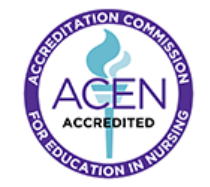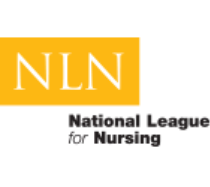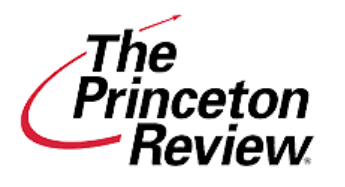Online MSN to DNP in Nurse Education
Overview
Nurse educators are critical to the success of our health care systems, as they prepare student nurses for careers in compassionate and life-saving work. However, according to the American Association of Colleges of Nursing (AACN), faculty shortages across the country are limiting student capacity at a time when the need for professional registered nurses continues to grow.
The AACN recommends that nurse educators complete a graduate-level degree, such as a Doctor of Nursing Practice (DNP), because it prepares them to attain a firm grasp of the core professional competencies that are central to developing, implementing, managing, evaluating, and improving nurse education programs in various settings.
Our online MSN-DNP Nurse Education program includes a competency based curriculum that prepares for all modalities including online, simulation and traditional. The program is designed to provide the knowledge, skills and attitudes needed today to support desired learning outcomes, provide critical feedback and effectively educate the ‘nurse of the future.’
You may be eligible for a one-time Rise at Regis credit, valued at $1,025, if you start your journey this summer. There’s a 6-credit enrollment requirement.
Calendar
FNP, PNP, WHNP, AGNP, AGACNP, and PMHNP
Credits: 54-66
Courses: 15-19
Duration: 44-48 months
DNP Leadership, DNP Education, and DNP General
Credits: 27-36
Courses: 9-12
Duration: 20-24 months
Application Deadline:
March 30, 2026
Upcoming Start Date:
May 4, 2026
Why Regis Online for Your DNP in Nurse Education?









Nurse Education by the Numbers
80,000
7.2%
72,600
+22%
What Can You Do With a DNP Degree in Nurse Education?
Exposure to the advanced theoretical and clinical concepts featured in the DNP curriculum can help graduates qualify for advanced positions in academia as well as clinical training and development programs. As nurse educators, they use their advanced expertise to teach nursing students and practicing nurses the knowledge and skills necessary to attain higher education degrees or certifications. They design education programs, implement teaching methods to support desired learning outcomes for students, and provide critical feedback along the way.
- Designing course curriculum
- Evaluating and updating current educational programs
- Conducting lectures
- Designing assignments and test to assess student learning
- Mentoring and advising students with constructive feedback
- Facilitating guided classroom discussions
- Leading clinicals to help develop students’ practical skills
- Contributing to scholarly work
Where Do Nurse Educators Work?
With a national shortage of nursing faculty and a wave of Baby Boomers nearing retirement, nurse educators are in higher demand than ever. That means DNP degree holders who specialize in nursing education can take their teaching expertise to a variety of settings, including:
- General medical and surgical hospitals
- Psychiatric and substance abuse hospitals
- Privately owned practices
- Junior colleges
- Four-year colleges
- Universities
- Technical and trade schools
- Distance learning programs
- Long-term care facilities
- Community health agencies
Hear From Our Students

Careers with an Online MSN to Doctor of Nursing Practice
Data from the U.S. Bureau of Labor Statistics predicts an astounding 45% employment growth rate between 2019 and 2029 for nurse practitioners, nurse anesthetists, and nurse midwives. As of April 2021, the median salary for the DNP-prepared nurse was $103,662. *
By 2025, the American Association of Colleges of Nursing (AACN) has recommended that the DNP be required for advanced practice nursing. Similarly, the Future of Nursing report issued by the Institute of Medicine has called for nurses to take on greater responsibility to handle the growing number of patients requiring care as populations age and we navigate new challenges brought forth throughout the recent pandemic. An online Doctor of Nursing Practice can put you at the forefront of health care, prepared to take on high-level positions and help meet the rising demand.
As a DNP-credentialed nurse, you may have career opportunities such as:
Nurse Practitioner
Median wage: $111,680*
Nurse practitioners (NPs) are highly educated and hold higher levels of autonomy in their practice. NPs dedicate their practice to specific patient populations, such as women’s health, families, children, or the elderly. DNP coursework provides students with advanced research skills needed to incorporate evidence-based practice into their care strategies.
Practice settings include:
- Private physician and NP practices
- Hospitals
- Colleges and universities
- Public health departments
Nurse Informaticist
Median wage: $84,821**
Nurse informaticists specialize in managing the information technology that nurses use to process patient health information and communicate with care teams. With a DNP education, nursing professionals can learn how to innovate in this field and optimize these information systems to improve delivery of care.
Practice settings include:
- Hospitals
- Consulting companies
- Medical groups
- State and national government agencies
Chief Nursing Officer
Median wage: $133,623**
This executive role involves directing the operations of nursing staff in a medical organization. In some cases, a chief nursing officer or chief nursing executive may have some involvement in advocating for the nursing profession by developing, analyzing, and proposing various health and professional policies.
Practice settings include:
- Hospitals
- Rehabilitation facilities
- Government agencies
- Healthcare system corporate offices
Nurse Policy Specialist
Median wage: $79,178***
Health policies govern health organizations and help societies achieve specific health objectives. DNP graduates have a deeper perspective of how local, state, and federal health systems interact with one another, allowing them to offer valuable input to these policies.
Practice settings include:
- Government organizations
- Public health agencies
- Hospitals and clinics
- Advocacy organizations
Nurse Administrator
Median wage: $104,280*
Nurse administrators fill management and leadership roles in health care organizations. With their expertise in administrative procedures, they manage nursing teams, nursing units, a department, or nurses throughout an entire health system.
Practice settings include:
- Hospitals
- Nursing homes
- Clinics
- Physicians’ offices
Clinical Educator
Median wage: $83,040****
Clinical educators facilitate the training and development of nurses. They often work in hospitals and clinics but can also be found teaching in academic settings. They’re responsible for evaluating their units’ current needs and delivering suitable teaching plans that inform, motivate and energize their students.
Practice settings include:
- Clinics
- Hospitals
- Colleges and universities
- Health care organizations
Clinical Nurse Consultant
Median wage: $87,521**
Clinical nurse consultants advise health care institutions to help them provide the highest quality of care. Depending on their professional background, they can specialize in different areas of health care, such as acute care or primary care. They’re responsible for overseeing treatment plans and helping nursing departments improve their operational strategies.
Practice settings include:
- Hospitals
- Outpatient treatment centers
- Research labs
- Emergency rooms
Nursing Home Administrator
Median wage: $92,094**
Nursing home administrators oversee the fundamental operations of a nursing home facility, such as planning, directing, and coordinating health services. They’re required to stay abreast of various changes in laws and regulations pertaining to nursing home care so they can make sure the facilities they manage stay compliant.
Practice settings include:
- Memory care facilities
- Skilled nursing facilities
- Retirement communities
- Veteran Affairs (VA) nursing homes
Nurse Researcher
Median wage: $95,000*****
Nurse researchers study various aspects of health care and illness. They design and conduct scientific studies, and collect and analyze data to improve current health care standards. They often survey patients to compile feedback about their satisfaction with nursing services and facilitate studies where different interventions are tested on patients to determine the efficacy.
Practice settings include:
- Hospitals
- Medical clinics
- Colleges and universities
- Government agencies
**Payscale.com
***ZipRecruiter.com
****Salary.com
*****ExploreHealthCareers.org
Ready for Your Next Step?
Online MSN to Doctor of Nursing Practice Curriculum
Experience an Expertly Crafted Curriculum Taught by Our Supportive Faculty.
MSN to Doctor of Nursing Practice (1st Specialization)
- Master’s degree in nursing from a regionally accredited institution and accredited nursing program
- Active unencumbered RN license
- You might have to take additional courses as part of the program
MSN NP to Doctor of Nursing Practice (2nd Specialization)
- Master’s degree in nursing from a regionally accredited institution and accredited nursing program
- Active unencumbered RN license
- Proof of NP certification
- You might have to take additional courses as part of the program
MSN NP to Doctor of Nursing Practice (Doctorate Only)
- Master’s degree in nursing from a regionally accredited institution and accredited nursing program
- Active unencumbered RN license
- Proof of NP certification
- You might have to take additional courses as part of the program
Core Courses Include:
Concentration Areas
- Pediatrics (PNP)
- Family (FNP)
- Psychiatric Mental Health (PMHNP)
- Women’s Health (WHNP)
- Adult Gerontology – Acute Care (AGACNP)
- Adult Gerontology – Primary Care (AGPCNP)
- Nurse Education
- Nurse Leadership
Concentration Courses*
Pediatrics (PNP)
Select one: NU 635 Complementary Therapy, NU 661, NU 643, or NU 670 – 24 field work hours)
Psychiatric Mental Health (PMHNP)
Adult Gerontology - Primary Care (AGPCNP)**
Adult Gerontology – Acute Care (AGACNP)
Family (FNP)
Select one: NU 635 Complementary Therapy, NU 661, NU 643, NU 670 – 24 field work hours, or HP 626
Women’s Health (WHNP)
Nurse Education
Nurse Leadership
Co-Requisite Courses for MSN-DNP (Non-Nurse Practitioners)
MSN-DNP (Non-Nurse Practitioners) take these additional courses
Co-Requisite Courses for MSN-DNP (Nurse Education and Nurse Leadership)
Co-Requisite Courses for MSN-DNP (second specialization)
Co-Requisite Courses for MSN NP to DNP (Doctorate only)
**Formerly referred to as AGNP
About Regis
Frequently Asked Questions
Regis is a leading Catholic university in Greater Boston that has been preparing students for success in an evolving, global world since 1927. Our renowned and doctorally prepared faculty provide nurses with a values-based education integrated with cutting-edge technology and industry-focused curriculum in a wide variety of high-demand and niche specializations, including Nurse Education. Our program offers several flexible entry options for the DNP student, including your first specialization, or second specialization, doctorate coursework only, and the MSN-DNP Bridge program.
Our online MSN to Doctor of Nursing Practice incorporates insider perspectives on the leadership qualities the field demands to help you build the skills you’ll need to positively affect the field.
The program allows four specific points of entry:
- MSN to DNP – Designed for non-nurse practitioners who hold an MSN
- MSN NP to DNP (second specialization) – Designed for NPs who are interested in adding a new area to their existing scope of practice.
- MSN NP to DNP (Doctorate only) – Designed for existing NPs looking to pursue doctorate-level coursework.
Depending on your entry point and chosen specialization, the amount of credits earned through the online MSN to Doctor of Nursing Practice degree may vary:
MSN NP to DNP (Doctorate only): 27-36 credits
Nurse Education Track: 36 credits
MSN to DNP:
Family Nurse Practitioner: 58 credits
Adult Geriatric Nurse Practitioner: 61 credits
Pediatric Nurse Practitioner: 58 credits
Psychiatric Mental Health Nurse Practitioner: 64 credits
Women’s Health Nurse Practitioner: 61
Depending on your entry point, you may complete your online MSN to Doctor of Nursing Practice degree in as few as:
24 months – MSN NP to DNP (Doctorate only), Leadership Track and Nurse Education Track
36 months – MSN to DNP/MSN NP to DNP (second specialization)
*Final curriculum will be decided on individual basis, including potential transfer credits
Cost Per Credit Hour:
- $1025 per credit hour
Application fee: $75
More information about online graduate nursing program tuition and fees, financial aid, payment options, etc., can be found here.
Regis is proud to offer a 10% tuition discount on fully online programs for employees, members, and spouses of employees of our partner organizations.*
Regis College aims to help military, veterans, and their families to further their education. This is why we offer a 15% tuition discount to all active and reserve military, veterans, and military spouses for our online programs.
We’re also pleased to offer 15% off tuition on online programs to all federal government employees, and their spouses, working in any federal department.
A 10% Alumni discount is available to anyone who has graduated from Regis with a degree, excluding those who only received a certificate from Regis.
Two levels of graduate assistantships are offered at Regis, giving students the unique experience of gaining valuable professional skills while benefiting from financial aid opportunities.**
*Some exceptions apply. The Regis partnership discount cannot be combined with any other discount or scholarship offered by Regis.
**Graduate Assistantships are available to graduate students who are enrolled in a minimum of six credits within their graduate program and maintain a 3.0 GPA.
Online MSN to Doctor of Nursing Practice Resources

NP to DNP: In Less Than 10 Years, All Nurse Practitioners May Need to Hold a DNP
In an increasingly complex health care environment, nurse practitioners lead the industry in delivering better health outcomes for individual patients and communities at large.

The Difference Between MSN and DNP Degrees
While obtaining either degree can be key to finding success in the profession, there is a noticeable difference between MSN and DNP degrees — one that warrants deeper scrutiny.

10 Skills of a Nurse Practitioner
The skills of a nurse practitioner are vital to achieving positive health outcomes. Explore nurse practitioner skills that are critical in health care.

Top Reasons to Get Your DNP Degree
A DNP does more than potentially unlock high-level opportunities that may not be open to nursing professionals with only an MSN.
Tuition and Fees
$1025
Per credit hour
$75
Application fee
